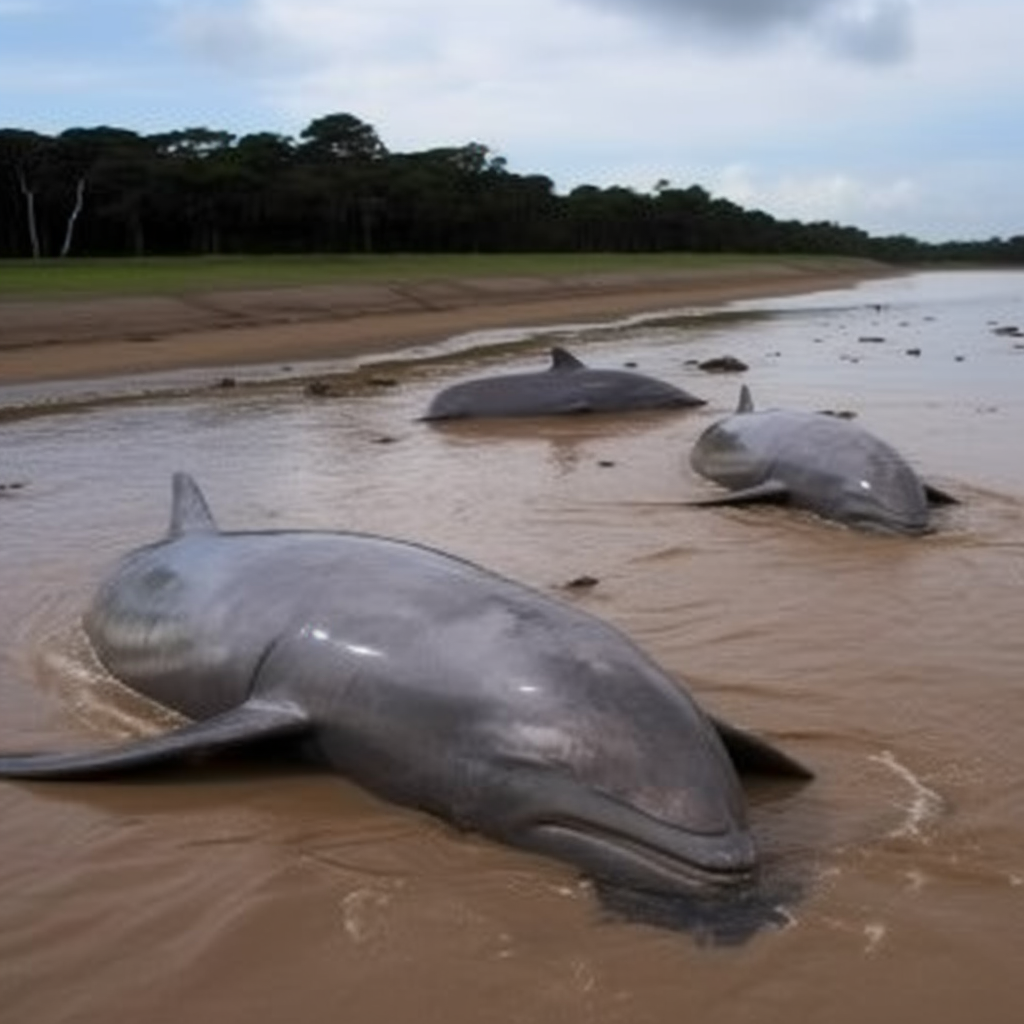October 4, 2023
Amazon’s Aquatic Crisis – Dolphin Deaths & Conservation Urgency
Book a Demo
A recent surge in the death of dolphins found in the Brazilian Amazon has raised alarming concerns about the health of the region’s aquatic life, emphasizing the urgency for comprehensive investigations and effective conservation measures. Over 100 Amazonian river dolphins, known as botos, have succumbed to the lethal effects of high water temperatures brought on by a prolonged drought. The potential causes of these mass deaths range from disease to sewage contamination.
Brazil’s extreme weather conditions and harsh dry season have significantly contributed to the ecological crisis. The Amazon River is losing an alarming 30cm of water each day, leading to crises in food and fuel supplies in the worst affected areas. This grim situation is not only affecting the human population but is also proving to be catastrophic for the aquatic life in the region.
The mass death of botos, which are indicators of river health, could potentially signify an impending ecological disaster. This disastrous event further raises the extinction risks for these endangered species, emphasizing the crucial need for global conservation measures. The unfortunate fate of these dolphins, therefore, shines a spotlight on the urgent need for protection of Amazon’s biodiversity and policy changes to combat climate change.
Environmental groups are suspecting that the mass deaths may be due to toxins from an algal bloom, triggered by unusual weather patterns. To ascertain the cause of these deaths, the Brazilian environmental agency, Ibama, has initiated an investigation. Over 200 bodies of the rare Amazonian pink river dolphins have been discovered in the past month alone, making the situation even more critical.
The increasing frequency of droughts and rising temperatures due to climate change pose a significant threat to the survival of the botos. These creatures are the world’s largest freshwater dolphins and a crucial part of the Amazon ecosystem. Therefore, their survival and well-being are integral to the health and balance of the Amazon ecosystem. With the survival of these dolphins at stake, it’s evident that the consequences of climate change are far-reaching and devastating.
The plight of these dolphins stands as a stark reminder of the urgent need for effective global conservation measures and climate change policies. As the health of these dolphins is a direct indicator of the overall health of the river, their mass mortality signals a warning for an impending ecological disaster if immediate and effective measures are not taken.



